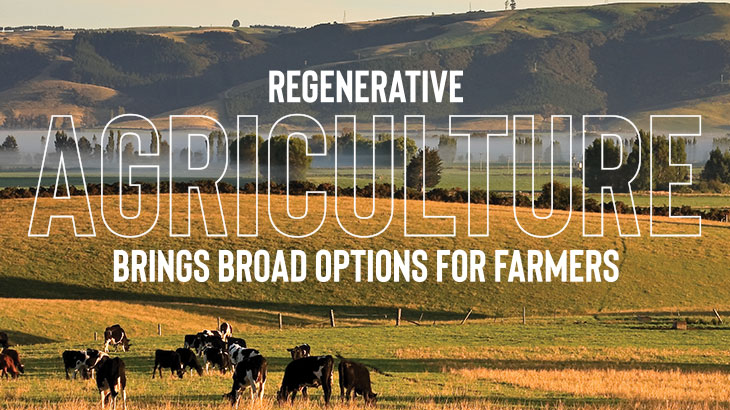Regenerative agriculture brings broad options for farmers
Regenerative agriculture brings broad options for farmers
Regenerative agriculture is a phrase being heard more often by farmers in New Zealand, but one not always well understood and likely to result in blank stares and shrugged shoulders when asked to explain what exactly it is.
So, what exactly is “regenerative Agriculture?”
It is a description that covers a broad sweep of land use practices, with a focus on regenerating top soil while also improving water quality, building plant biodiversity on farm and reducing the level of cultivation and tillage.
For a generation of farmers now facing environmental pressures never witnessed in human history it provides some valuable tools and techniques that can help them create a farm system that is robust to the inevitable impacts of climate change.
Regenerative agriculture does not necessarily mean a farmer has to become organic, although some organic practices certainly fit into the “regenerative” description, and it is a broad definition with practices that can be adopted over time.
A new road for industry convert
Regenerative agriculture consultant Jono Frew attests his background in agriculture was very much of the conventional variety before he became aware about how much the practice could return on a physical and personal level.
After 11 years in the dairy sector and three in arable, he had to concede conventional agricultural practices were taking an isolated, linear view of how crops, soil and humans all interact. He maintains that nature’s complexity, a regenerative approach demands a simpler approach than conventional systems deliver for many farmers.
“There is a lack of creativity in how we set up most farming systems, and a real competitive mindset about who is performing ‘the best’, and if you are not ‘the best’, then the question is often asked ‘why are you doing it then?’”
Read more...
[Download PDF]